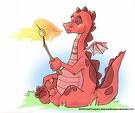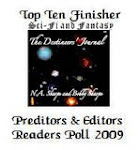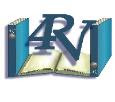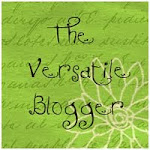
One consideration when worldbuilding for your story might involve determining when in time the story is to take place. Is it a futuristic tale? Something from a present day feel? Or, perhaps you are going to borrow the way-back machine and take a glimpse into the past and inter-mingle historic events with your fictitious storyline, a genre referred to as historical fiction. Alternatively, your worldbuilding time line may offer a glimpse into an alternate timeline based in a realistic historical time period…a “what if” scenario if the time space continuum is disrupted by one simple change in the historical timeline as we know it. This is called alternative historical fiction.
The internet and bookstores are my favorite resources for gathering facts about historic details, but if you have a good library near by, then plan to spend some time there if you write in a historical time frame.
One book I have found helpful is an Encyclopedia of World History, Compiled and Edited by William L. Langer. This book covers the history of entire era in chunks, and you can look up specific dates and see what was going on elsewhere in the world at the same time. This can be a very useful tool for generating ideas.
The Internet, however, remains my favorite resource for researching knowledge of the past. While it might be an easier way to find a lot of information, you have to keep in mind that not everything on the Internet is reliable. It's a good idea to double check every fact and date. In fact, fact checking is always a good habit to practice.
If you are writing historical fiction -- or a fantasy set in a historical period -- you may want to consider haunting used book stores and book sales and pick up a good, out of date encyclopedia. If the majority of information you intend to look up is from the medieval 1500's it isn't going to matter if your encyclopedia was printed in 1984 or last month. As these reference books are typically inexpensive resources (particularly if they have an older date of print) you can afford to purchase these treasure troves and highlight areas, write notes in the margins, and put reference tabs throughout the book virtually guilt free. You can also make notes in these historical references as to how it is going to tie into your created timeline and storyline.
Remember, worldbuilding does not occur only in the realms of fantasy and science fiction. Virtually all fiction requires some degree of worldbuilding. Other research suggestions? What works for you? Are there favorite resources you have found?
Like this post? Tweet it! Go ahead, you know you want to! 
We just want to help you
2 months ago


























4 comments:
Like you, I rely on the internet for most of my research. For basic facts and such I also love my copy of The New York Public Library Desk Reference.
I’ve always been an Internet kind of guy, but, I like your idea of being able to highlight and write in the margins. Love that, too. You’ll recall my post on EverNote; a great way to do internet research and store as well as reference your ideas. What did writers DO before word processing, spell checker, and the internet. I just can’t imagine.
Best Regards, Galen
Imagineering Fiction Blog
I love history timelines. They're useful in so many ways. Have you seen this website: http://www.animatedatlas.com/timeline.html
Hi everyone - welcome and thanks for stopping by!
Hi Karen - I think its a great resource. I'd love to hear what you think about it.
Hi Jane - another excellent resource. L love libraries - always have. They are such a treasure trove of resources and adventure and mystery and fantasy and general fiction.
Galen! I am so glad you reminded me about Evernote - that sounded like such a cool idea
Hi Patricia - what a great link! Thank you so much for sharing - got it book marked :)
Nancy, from Realms of Thought…
Post a Comment